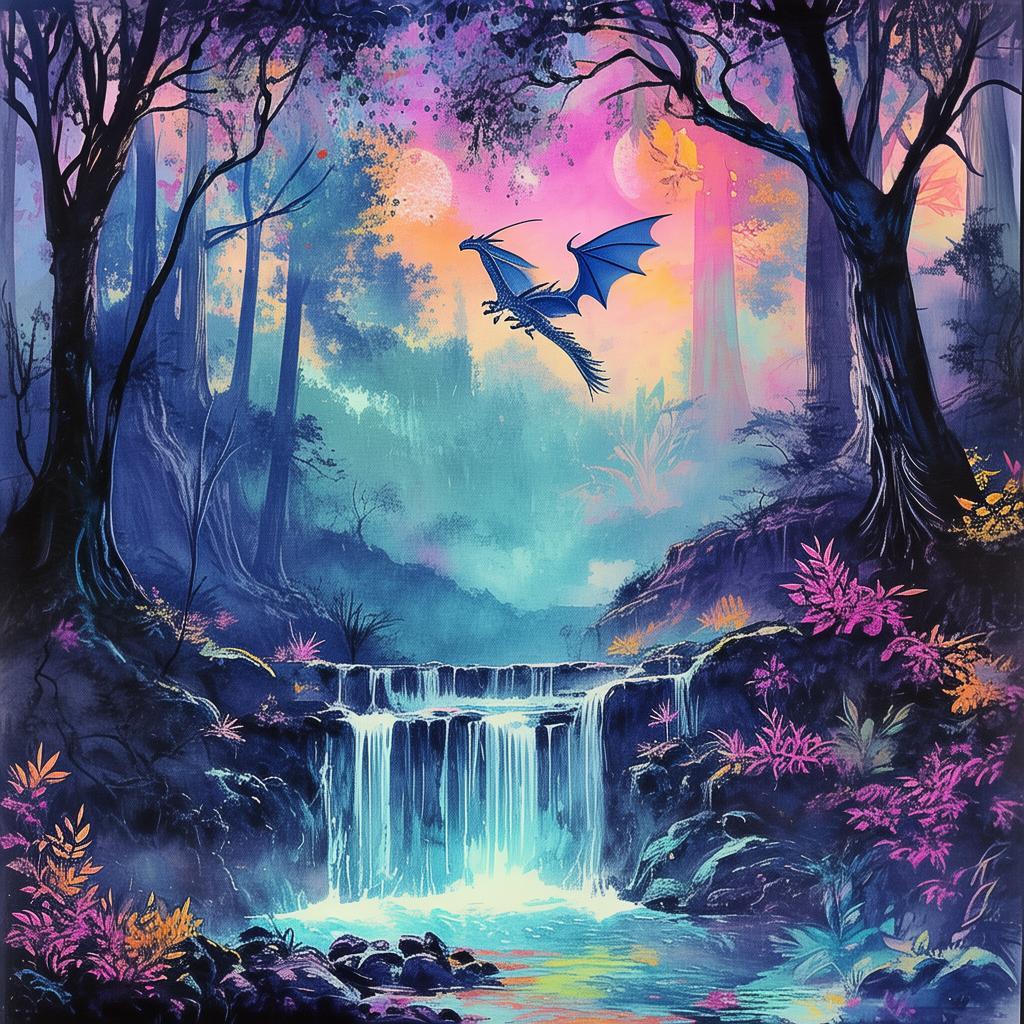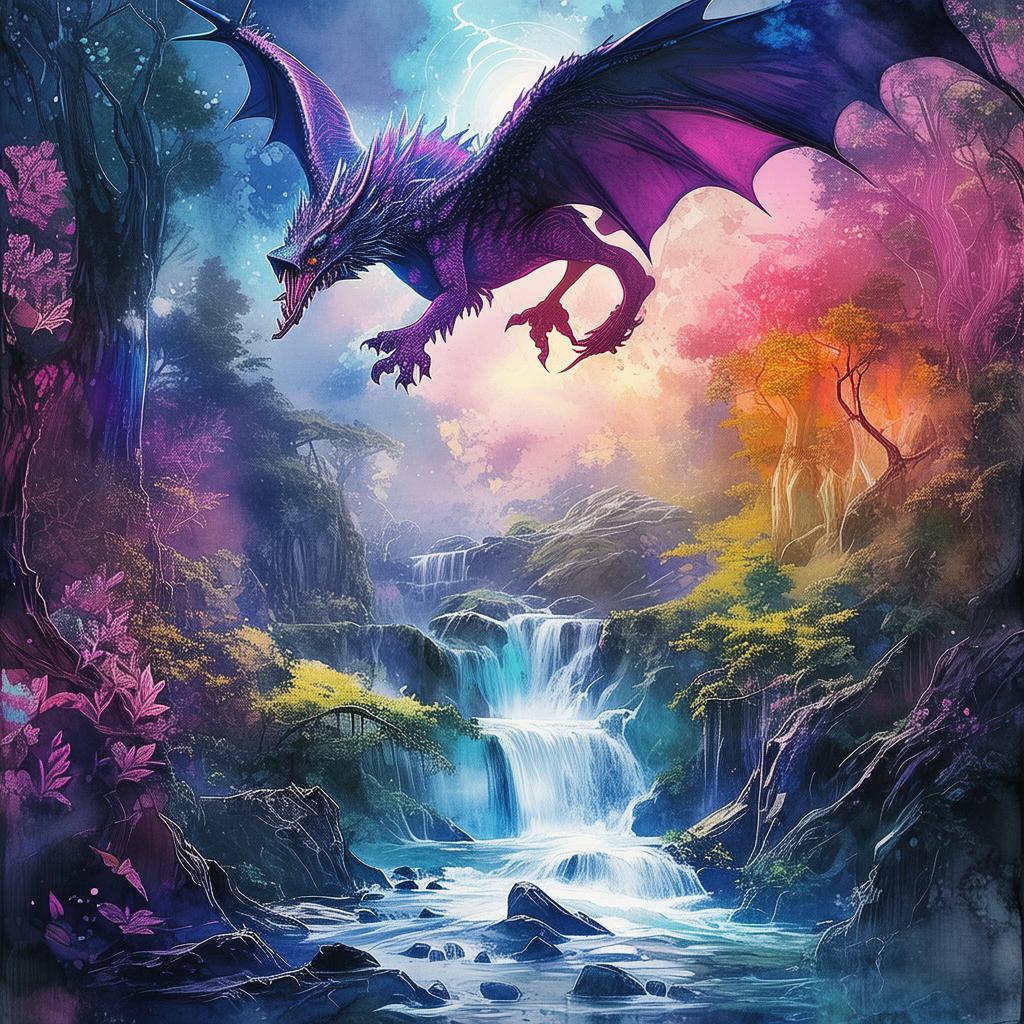The Echoes of the Moonlit Symphony
In the heart of the bustling metropolis of Luminara, where the skyscrapers pierced the heavens and the hum of neon lights never ceased, there lived a young woman named Elara. Her life was a tapestry of contrasts—her days filled with the cacophony of the city, yet her nights were serenaded by the hauntingly beautiful melodies of her violin.
Elara's parents were musicians, both of whom had passed away when she was a child. They had left behind a legacy of music that was steeped in the ancient traditions of their people, a people who once thrived in harmony with the natural world. But with the rise of technology and the relentless march of progress, the old ways had all but faded into legend.
Elara's violin was her connection to the past, a vessel through which she could channel the ancient harmonies that her parents had once played. Her music was a whisper in the wind, a reminder of a time when the world was a symphony of balance and peace.
One moonlit night, as the silver light of the full moon bathed the city in an ethereal glow, Elara found herself drawn to the old, abandoned concert hall on the outskirts of Luminara. It was a place that her parents had often spoken of in hushed tones, a place where they had once performed their most profound compositions.

As she stepped inside, the air was thick with dust and the scent of forgotten dreams. The grand piano, once a centerpiece of the hall, stood silent and forlorn. Elara's fingers danced across the keys, and a haunting melody began to emerge, a melody that seemed to be woven from the very fabric of the building itself.
Suddenly, the walls began to tremble, and a voice echoed through the hall, a voice that was both ancient and modern, both soothing and foreboding. "Elara, child of the moonlit symphony, you have been chosen."
Confused and frightened, Elara ran from the hall, but the melody followed her, a haunting siren call that she could not escape. She returned to the concert hall, determined to uncover the truth behind the voice and the melody.
Inside, she discovered a hidden chamber, its walls adorned with ancient runes and symbols. In the center of the chamber stood a pedestal, upon which rested a small, ornate box. As she opened the box, a holographic projection of her parents appeared, their faces etched with concern and urgency.
"Elara," her father's voice echoed, "the world is on the brink of a great conflict. The ancient harmony between man and nature is being shattered by the relentless pursuit of progress. Your music, your connection to the past, is the key to restoring balance."
Elara's heart raced with fear and excitement. She knew that she had to act, but she also knew that the path ahead would be fraught with danger. The modern world was not kind to those who dared to challenge its norms.
With the melody as her guide, Elara began to perform her parents' most powerful compositions, using the ancient harmonies to heal the rift between the world and the natural world. Her music became a beacon of hope, a reminder of the beauty that could be found in the world if only people would listen.
But not everyone was willing to listen. A powerful corporation, whose interests lay in the exploitation of the natural world, saw Elara's music as a threat to their profits. They sent their agents to silence her, to destroy the concert hall, and to erase the ancient melodies from existence.
In a climactic confrontation, Elara faced off against the agents of the corporation, her violin as her weapon. The battle was fierce, and the stakes were high. But with the help of her newfound allies—members of the old world who had fought to preserve the harmony between man and nature—Elara managed to defeat the agents and protect the concert hall.
The corporation's plans were thwarted, and the ancient melodies were safe once more. Elara's music had not only saved the concert hall but had also sparked a movement, a movement that would bring people together to fight for the balance between progress and nature.
In the end, Elara realized that her music was not just a reminder of the past but a beacon of hope for the future. She had found her purpose, and with it, she had found her voice. And so, the moonlit symphony continued to resonate, a testament to the power of harmony and the resilience of the human spirit.
✨ Original Statement ✨
All articles published on this website (including but not limited to text, images, videos, and other content) are original or authorized for reposting and are protected by relevant laws. Without the explicit written permission of this website, no individual or organization may copy, modify, repost, or use the content for commercial purposes.
If you need to quote or cooperate, please contact this site for authorization. We reserve the right to pursue legal responsibility for any unauthorized use.
Hereby declared.









